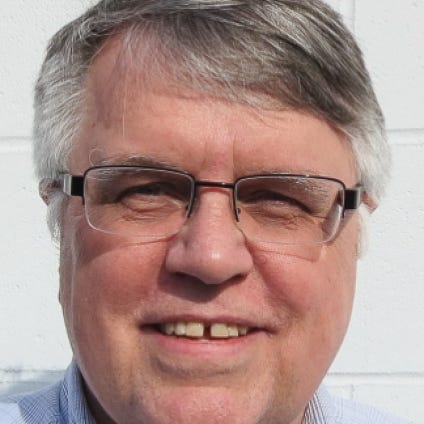Embrace conversation, Enhance commonality, Evolve community
City Conversation # 130: When government declines to consult, folks step up
As part of the BC Town Halls 2024 movement, I was invited last weekend to a church in East Vancouver to talk about BC’s housing Bills 44, 46 and 47 passed last November after scant notice or debate—I will transcribe my remarks about those in a future City Conversation. What I did not expect was to discover this grassroots movement, which my presentation was a part of.
There were four of us speaking: a neurosurgeon talking about Bill 36, the Health Professions and Occupation Act; a lawyer explaining Bill 21, the Legal Professions Act; another lawyer discussing Bill 31, the new Emergencies and Disaster Management Act; and me and my three housing-related Bills. I was told some municipal and provincial politicians had been invited, but all had declined.
I had been warned the day of the event that there might be some content outside of my “wheelhouse,” possibly contrary to my own beliefs—and there was. Initially, this caused me concern, but it was too late to pull out. I’m glad I didn’t.
The church hall was packed to capacity—at last 130 people (the legal limit) with several standing. While we four presenters talked for over an hour, the audience was attentive through our presentations that often talked about minutiae such as specific Bill clauses and related legal cases (by the lawyers)—complex stuff. Coming after the doctor and the lawyer, I realized I had not included in my remarks a characterization of Bills 44, 46 and 47 that matched theirs, so I started by summarizing Bills 44, 46 and 47 similarities to Bills 21, 31 and 36:
The six Bills are all long and complex, hence the need for our explanations;
They were all rammed through the Legislature with scant public or legislative input;
They all adopted a “one size fits all” approach. In the case of Vancouver and Bills 44, 46 and 47, this means the end of 22 neighbourhoods in favour of a single sanitized, dispiriting approach for every larger community;
They all involve draconian penalties for noncompliance, imposed by government appointees rather than elected members of the respective professions or vocations.
What a sorry list of similarities.
As I usually do, I talked from a baker’s dozen PowerPoint slides. A future City Conversation will summarize my presentation about Bills 44, 46 and 47. After the meeting concluded, I was told by several in the audience that, to their horror, they finally understood this trio of Bills, so I guessed I did okay.
Unlike too many public consultations, this event included over an hour of Q&A. Most questions were about the sorry state of our medical system, and included testament by anti-vaxxers (I am NOT one of them but listened carefully) and folks who felt abused by the legal and medical systems. Thinking on it and given the slower pace of building design and construction, Bills 44, 46 and 47 are still too new to have created much harm. I was asked about the potential for a surveillance-based “15-minute city,” which I politely dismissed for the conspiracy theory I believe it is. I was also asked about the seemingly wanton cutting of trees in Stanley Park, which I could not explain except to note as an example of government action without much if any public consultation. In future, Bill 31 may apparently make such draconian actions more frequent, with even less public consultation and communication.
After the event was over, almost nobody left—most folks stayed to converse with each other and debate their disagreements. One anti-vaxxer offered me a certificate of non-vaccination, which I declined, saying something like, “I’m afraid our views on that subject are diametrically opposed.” He did not argue, rather stood with me and a few others, listening with interest as we discussed the finer points of the housing Bills.
Afterwards, reflecting on the evening I realized its success was based on the three principles, Embrace, Enhance and Evolve, that I use to frame my approach to many of the events of our day:
We all embraced conversations arising from the speakers and the Q&A;
We all enhanced commonalities amongst us through post-event discussion and learning;
We all evolved community based on our shared commitment to work together for collective betterment.
And in these difficult times it doesn’t get much better than that.
If you appreciated this post, please share to your social media and consider becoming a free subscriber to City Conversations at
Brian Palmquist is a Vancouver-based architect, building envelope and building code consultant and LEED Accredited Professional (the first green building system). He is semi-retired, still teaching, writing and consulting a bit, but not beholden to any client or city hall. These conversations mix real discussion with research and observations based on a 50-year career including the planning, design and construction of almost every type and scale of project. He is the author of the Amazon best seller and AIBC Construction Administration course text, “An Architect’s Guide to Construction.” and hoping to start in 2024 a book about how we can Embrace, Enhance and Evolve the cities we love.




Thank you. Gives me a little hope. Time for a complete change in government at all levels. More respect for those governed. Such over reach.
I'm so glad you didn't pull out. We all found common ground and it was an extremely unifying evening. Your presence was essential. Thank you.